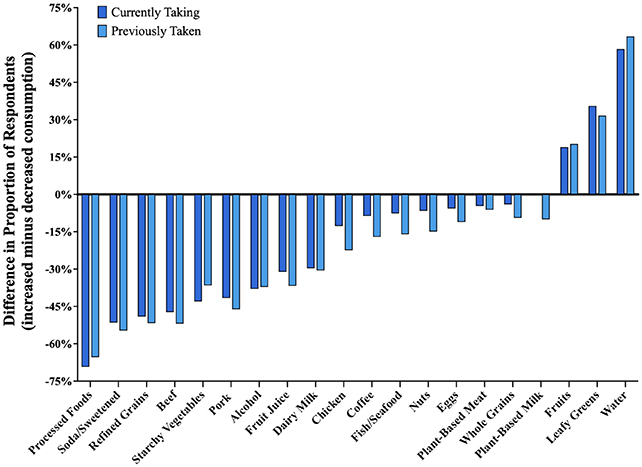We've heard how the use of drugs like Ozempic can drive weight loss, as well as potentially boost heart health and cut out alcohol cravings; now a new study reveals fresh insights into how the medication can change eating habits, too.
Along with other semaglutide drugs like Mounjaro and Wegovy, Ozempic is what's known as a glucagon-like peptide-1 receptor agonist (GLP-1RA), which means it mimics the body's natural response to food to reduce appetite and slow digestion.
Led by the US Department of Agricultural Economics & Agribusiness, the study analyzed the eating habits of 1,955 participants, split into four groups: those currently taking GLP-1RAs, those who had taken them in the past, those who were planning to take them, and those who had never taken them and weren't planning to.

"Results show that consumers currently taking a GLP-1RA consume significantly fewer calories than the other groups surveyed, and calorie reduction while taking a GLP-1RA for weight loss could be around 720 to 990 calories," write the researchers in their published paper.
As well as cutting down on the calories, those taking GLP-1RAs were most likely to reduce the amount of processed foods, sugary drinks, refined grains (such as white bread), and beef in their diet. Consumption of fruits, leafy greens, and water all went up, however.
There was a twist in the data story: people taking GLP-1RAs reported that they still wanted to eat high-calorie foods like processed foods and sugary drinks as much as before, they just chose not to, for whatever reason. Those effects could be the subject of future studies, the researchers suggest.
With tens of thousands of people starting a course of a GLP-1RA drug every week in the US, this shift in eating habits could have a major impact on food and drink production. We might even see foods specifically marketed towards people taking these drugs.
"Our study shows that adoption of GLP-1 agonists changes both the amount and types of food people eat," says agricultural economist Jayson Lusk of Oklahoma State University.
"These results have important implications for the food industry."
It's worth bearing in mind that Ozempic and drugs like it are still relatively new, and there's still a lot more to discover about them and how they work, beyond the average 15-20 percent weight loss they can lead to.
Originally developed to treat diabetes, these drugs are not without their side effects, and can trigger digestive problems in some people. One of the ways in which this new research might help is by pointing to dietary routines that could help boost the positives of GLP-1RAs while minimizing the risks.
"These findings underscore the need for further research into the specific physiological and metabolic pathways affected by GLP-1RAs, particularly regarding how they reshape dietary behaviors," write the researchers.
The research has been published in Food Quality and Preference.
